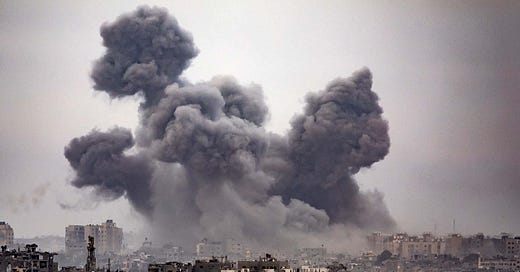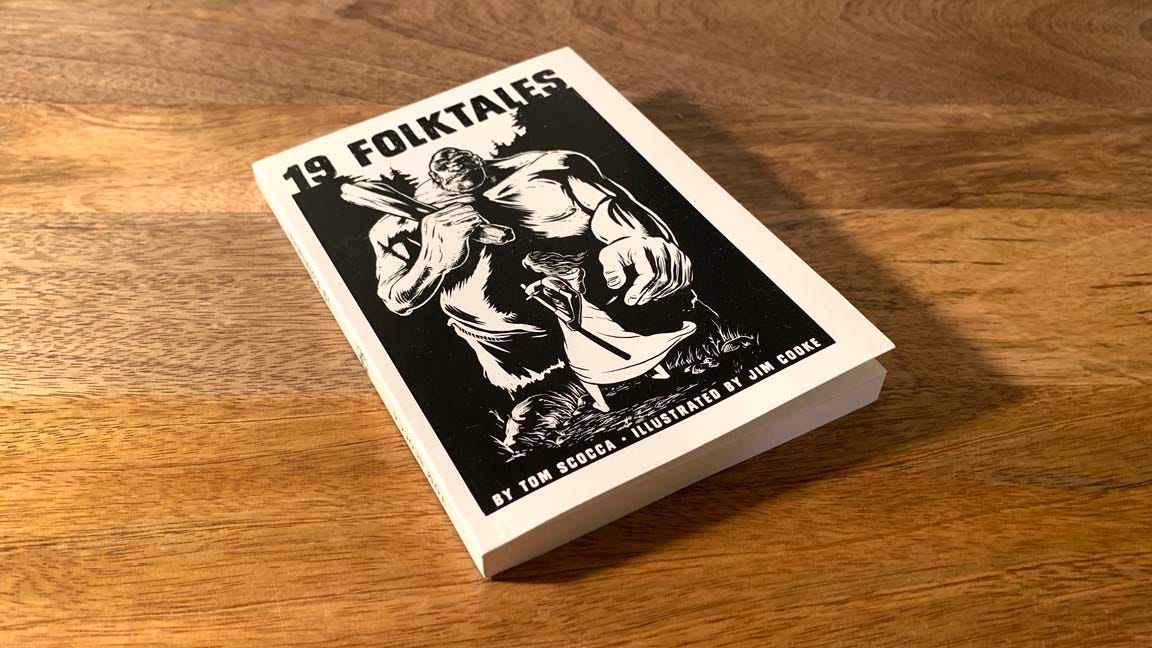
Israel Has Killed a Lot of Journalists
THE COMMITTEE TO Protect Journalists, which tries to keep count of the harm that comes to newsgatherers around the world, has reported that "at least 29" journalists are dead in the ongoing slaughter in southern Israel, Gaza, and beyond. Four Israeli journalists were among the victims of the Hamas massacres of October 7; most of the others were Palestinian journalists killed in Israeli airstrikes afterward.
Killing journalists, most American liberals would usually agree, is bad—both a bad thing to do in itself, and a bad indication of overall conditions. A situation in which journalists are being killed by the dozens is not compatible with liberal democracy.
This may be a narrow thing to focus on, against the backdrop of thousands of other deaths, but the events in and around Gaza have thrown liberal culture in the United States into a genuine crisis about priorities and values. Until recently, the American liberal mainstream more or less avoided discussing Palestinian human rights, and certainly didn't dwell on the subject whenever it was forced into the news. Many people seem to have sincerely mistaken that silence for a consensus, or that acquiescence for an agreement, supporting the pre-October status quo among the United States, Israel, and the Palestinians.
Now those people have seen, to their alarm, that people who they thought of as allies did not share their views. People who appeared to be trusted fellow-members of the Democratic Party's voting coalition were now using terms like "open-air prison" and "genocide" to discuss Israeli policy toward Gaza. Discussion of the horrors committed by Hamas turned into discussion of the horrors being wrought by the Israel Defense Forces. The belief in some shared moral and political framework began to collapse into recriminations and threats.
But what was it that everyone believed in, and what will they believe in going forward? The question at the moment isn't whether Israel has a right to defend itself against Hamas; it's whether Israel's response is in any way proportionate, justifiable, or even meaningfully an act of defense. These are the terms on which liberal democracies are supposed—emphasis on supposed—to resort to force, and journalists are the people who gather the facts about the actual conduct of war, so that everyone can compare the announced intentions to the actions.
Now the journalists themselves have become a fact: twenty-nine dead, and counting. The number of them killed by Israel is appalling, a number so large it's hard to know what to say or do about it. One lone journalist murdered by the Saudi government was rightly an international scandal, if not enough of one to keep the Saudis from bringing American foreign policy back to heel afterward. At least Americans understand the Saudis to be vile brutes, whose relationship with us is built on nothing but money, weapons, and oil (that is, money, money, and money). The Israelis are, by proclamation, our friends, an outpost of our values in a dangerous corner of the world. And our friends are massacring journalists at a rate that Mohammed bin Salman can only dream of.
There are two possible explanations for why the Israelis have killed so many journalists. One would be that the IDF is targeting them, as Reporters Without Borders described happening in the October 29 killing of Reuters reporter Issam Abdallah in southern Lebanon: Israeli forces bombed a hilltop position where seven reporters—wearing helmets and flak jackets marked PRESS and accompanied by a vehicle marked PRESS—had been set up "in the open for more than an hour" to observe combat between the IDF and Hezbollah. The IDF also deliberately bombed the Gaza headquarters of the Associated Press and other news organizations in 2021, and in 2022 someone in an Israeli military convoy fatally shot the Palestinian American reporter Shireen Abu Alekh in the head, while she and her companions were wearing PRESS helmets and gear. And the Committee to Protect Journalists has collected multiple incidents of reporters being harassed or arrested by Israeli forces while trying to cover the conflict.
The other possibility is that Israel is not particularly targeting journalists, and that the number of dead journalists simply reflects the indiscriminate nature of the military campaign. Al-Jazeera's Gaza bureau chief Wael Al-Dahdouh, for instance, is still alive and reporting, but among the news he has covered was the killing of his own family, in an airstrike on a refugee camp. The United Nations, meanwhile, reported that 53 of its relief workers have been killed. Journalists, then, would be one more of the many different kinds of noncombatants for whom being in Gaza is currently a death sentence.
Either case is indefensible. The bombardment of Gaza is making it impossible to learn what is happening in the bombardment of Gaza. Under these conditions, there is something particularly perverse about Joe Biden's declaration that he has "no confidence" in the casualty figures provided by the Gazan health ministry. Yes, the numbers are coming from an agency that is controlled by Hamas. But what other source of information can Americans turn to, while our allies are killing off the people who could contradict or confirm the official reports?
MARKETING DEP'T.
19 FOLKTALES collects a series of timeless tales of canny animals, foolish people, monsters, magic, ambition, adventure, glory, failure, inexorable death, and ripe fruits and vegetables. Written by Tom Scocca and richly illustrated by Jim Cooke, these fables stand at the crossroads of wisdom and absurdity.
HMM WEEKLY MINI-ZINE, Subject: GAME SHOW, Joe MacLeod’s account of his Total Experience of a Journey Into Television, expanded from the original published account found here at Hmm Daily. The special MINI ZINE features other viewpoints related to an appearance on, at, and inside the teevee game show Who Wants to Be A Millionaire. Your $20 plus shipping and tax helps fund The Brick House collective, a Publishing Concern featuring a globally diverse set of publishers doing their own thing, with interesting items and publications available for purchase at SHOPULA.
Thanks for reading INDIGNITY, a general-interest publication for a discerning and self-selected audience. We depend on your support!






